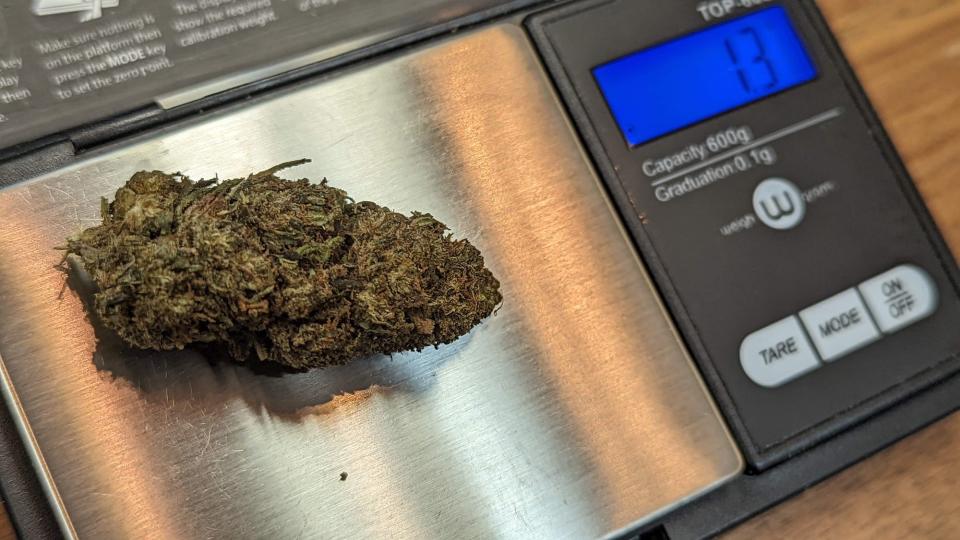Doobie careful: Lubbock attorney, law enforcement offer warnings as New Mexico pot law begins
A law legalizing recreational cannabis sales in New Mexico comes into effect Friday but local attorneys are advising Texans to use common sense to avoid serious legal consequences.
An hour-and-a-half drive northwest on U.S. 84 will take most drivers in Lubbock to the New Mexico cities of Texico and Clovis, where a handful of dispensaries are set to open when the new law goes into effect, according to the Eastern New Mexico News.
However, just because marijuana is legal across the state line, West Texans who plan to travel across the border to consume the drug should remember that the marijuana and THC products remain illegal in Texas, said local criminal defense attorney Stephen Hamilton.
"My advice to people is don't bring it back with you," he said. "I represented a lot of people who are coming back into Texas with something that's legal that they bought in Colorado."

Recreational marijuana sales began in 2014 in Colorado.
In Texas, possession of marijuana, depending on the amount, ranges from a Class B misdemeanor to a second-degree felony.
The New Mexico law allows for a 2-ounce limit, a Class B misdemeanor in Texas, which carries a punishment of up to six months in jail.
Hamilton said what shocks his clients is how Texas laws treat products infused with THC, the mind-altering chemical extracted from marijuana.
"I see a lot more people bring things back that are typically the edibles, the infused products," he said.
That's because Texas' controlled substance statute weighs THC products as a whole including any adulterants or dilutants. Possession of 4 to 400 grams of THC is a second-degree felony in Texas. So, possession of a 4-gram package of THC infused gummy bears may result in a second-degree felony, which carries a punishment of two to 20 years in prison.
"That's usually the biggest shock," Hamilton said. "We're not talking about it being a misdemeanor. Now, we're talking about it being a serious felony, most of those felonies."
David McCracken, an assistant district attorney at the Lubbock County District Attorney's Office, said another possible result of legalizing marijuana in New Mexico is people selling the product illegally in Texas.
"When you legalize something, it gets cheaper," he said. "So there may be some people from New Mexico, who may try to sell their product in Texas simply because ... You can sell it for more in Texas."
Hamilton also warns people to consider that even if they stay in New Mexico to consume the marijuana products and don't bring any over to Texas, they could also face drug testing from their employers, which could result in their firing.
"Because Texas is an at-will state and if the company has a drug policy, it doesn't matter if it was legal to consume that marijuana over there, my employer can still terminate me in Texas for the use of it," he said.
Texas Department of Public Safety spokesman Sgt. Johnny Bures said no increased patrols are planned, but troopers will be out looking for traffic and criminal violations as they always do.
Hamilton said law enforcement on the Texas side of the Texas/New Mexico border may be asking more questions during traffic stops to determine if people are taking the drugs into Texas.
"They're going to be watching the roads a little bit more than they probably are in the past and if you get stopped for speeding, you probably can expect some of those types of questions, 'Where are you coming from?', 'Do you have anything?', you know, that type of thing," he said.
This article originally appeared on Lubbock Avalanche-Journal: How will New Mexico's recreational cannabis law impact Lubbock?

